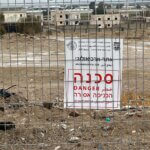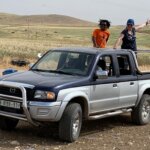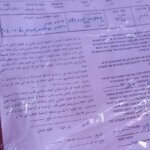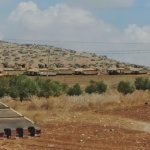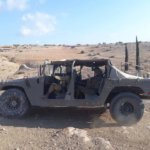JVS petitions UN, embassies and NGOs to act now to protect communities in military training area
Jordan Valley Solidarity have issued a petition to the UN, international embassies and international NGOs to take immediate action to protect the vulnerable communities in the Jordan Valley, where the occupation forces are planning to carry our major military exercises using live ammunition.
To:
United Nations
All international embassies and consulates
International NGOs
We petition you to take action to protect the vulnerable Palestinian communities of the northern Jordan Valley.
The occupation authorities have announced that they intend to carry out extensive training in a large area surrounding Hamra checkpoint from 1st May 2015. By doing so they will directly put at risk the lives of thousands of Palestinians living in the area.
The Palestinian communities of Humsa Fouqa, Ibziq and Ras ar Ahmar have all been issued with notices to leave their homes and their land for four days from Monday 4th May to Thursday 7th May, as have two other families that live between Al Hadidiya and Humsa, but it is not clear exactly when the training will start or finish.
Liaison with these communities has confirmed our fears that this training will be even more extensive than usual, and could completely destroy the livelihoods of those affected. This action is tantamount to ethnic cleansing in that it directly puts pressure on Palestinian families to leave the area and not return.
We are petitioning you to put direct pressure on the occupation authorities to:
- abide by their obligations under the Geneva Convention VI
- cancel the training
- revoke all the evacuation orders imposed on the communities of Humsa Fouqa, Ibziq and Ras ar Ahmar
For further information contact Rashid Sawafta of Jordan Valley Solidarity on +972592391208.
Case Study – Humsa Fouqa
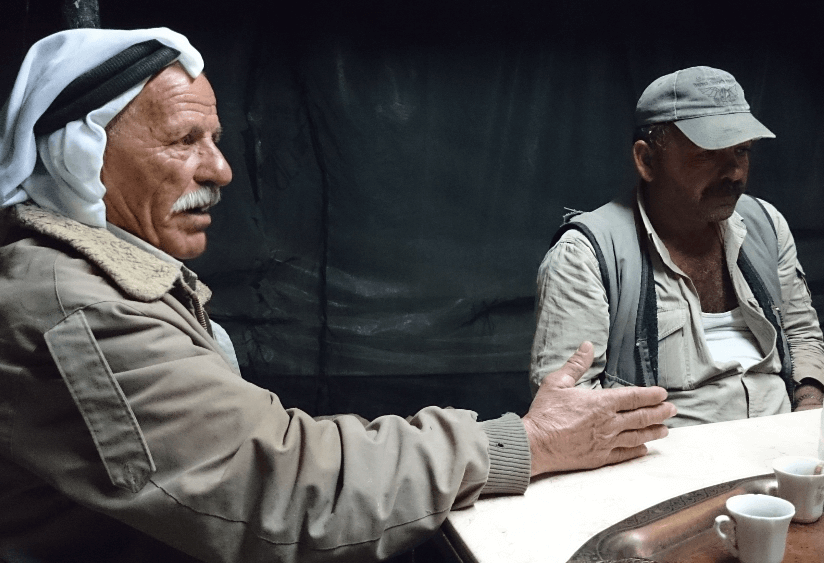 All information based on an interview with Ali Abu Lakbash conducted 1st May 2015 by Rashid Sawafta, Sarah Cobham, and Nat Isidore
All information based on an interview with Ali Abu Lakbash conducted 1st May 2015 by Rashid Sawafta, Sarah Cobham, and Nat Isidore
There are eight families living in Humsa Fouqa, comprised of over 60 people (including over 30 children).
The Occupation Forces went to the home of each family four days before our interview with papers telling them to leave their homes. They were asked to sign the papers stating that they would leave the area, and they signed them in the belief that they had no choice and the alternative would be for their homes and other buildings would be destroyed and they and their families could face violence from the occupation forces.
These communities have been subjected to demolition of properties in recent years and have been forced to leave their homes for military training.
However, Ali Abu Lakbash emphasised that in the past they have had to leave for one day (usually for 12 hours). This enabled them to leave their animals and feed and water them as they returned. This would not be possible if they had to leave for a longer period.
They ave also noticed that the preparations for the training are far more intense and extensive than usual – firing targets, rocket launchers and other heavy machinery have already been brought into the area, and there has been continuous movement around the area by convoys of military trucks and jeeps.
This is a particularly important time of year for this farming community.
They own over 5000 sheep and their lambing season has started: any lambs born when there is inadequate shelter will definitely die; those that are still young will be vulnerable; sheep which have not yet lambed could be affected by being moved or not receiving adequate food or water.
They grow crops and this year the wheat crops are the best they have been for 20 years due to the higher rainfall this winter. The people have already started to harvest their wheat, even though it is not quite ready, for fear that it will be destroyed if the live ammunition used in the training starts a fire on the hills – which would rapidly spread through the dry plants in the current windy weather. We could see the sacks of wheat when we arrived and they were still working hard in the dark when we left at 10pm.
The concerns about fire damage are very real. Recently the occupation forces started a fire on a nearby hill. When the brother of Ali Abu Lakbash asked the DCO why they had done this he said that he couldn’t see a problem as they could bring somebody from Tubas or Tammoun to put out the fire.
They know they won’t be able to harvest all the crops so used a digger to start digging a trench around one crop to save it if a fire starts in the area. When the occupation forces saw this and stopped them.


